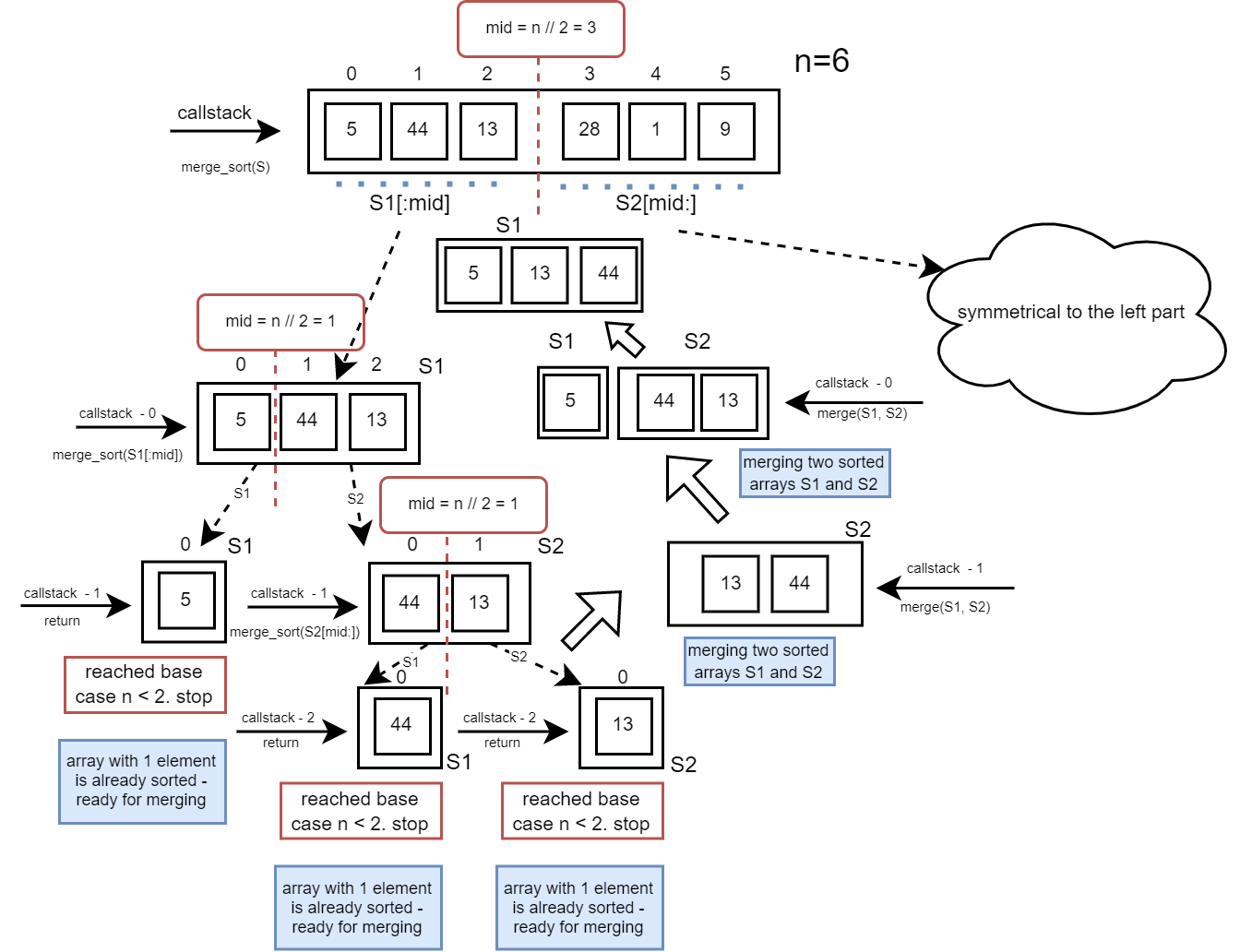A longer one that counts inversions and adheres to the sorted interface. It's trivial to modify this to make it a method of an object that sorts in place.
import operator
class MergeSorted:
def __init__(self):
self.inversions = 0
def __call__(self, l, key=None, reverse=False):
self.inversions = 0
if key is None:
self.key = lambda x: x
else:
self.key = key
if reverse:
self.compare = operator.gt
else:
self.compare = operator.lt
dest = list(l)
working = [0] * len(l)
self.inversions = self._merge_sort(dest, working, 0, len(dest))
return dest
def _merge_sort(self, dest, working, low, high):
if low < high - 1:
mid = (low + high) // 2
x = self._merge_sort(dest, working, low, mid)
y = self._merge_sort(dest, working, mid, high)
z = self._merge(dest, working, low, mid, high)
return (x + y + z)
else:
return 0
def _merge(self, dest, working, low, mid, high):
i = 0
j = 0
inversions = 0
while (low + i < mid) and (mid + j < high):
if self.compare(self.key(dest[low + i]), self.key(dest[mid + j])):
working[low + i + j] = dest[low + i]
i += 1
else:
working[low + i + j] = dest[mid + j]
inversions += (mid - (low + i))
j += 1
while low + i < mid:
working[low + i + j] = dest[low + i]
i += 1
while mid + j < high:
working[low + i + j] = dest[mid + j]
j += 1
for k in range(low, high):
dest[k] = working[k]
return inversions
msorted = MergeSorted()
Uses
>>> l = [5, 2, 3, 1, 4]
>>> s = msorted(l)
>>> s
[1, 2, 3, 4, 5]
>>> msorted.inversions
6
>>> l = ['e', 'b', 'c', 'a', 'd']
>>> d = {'a': 10,
... 'b': 4,
... 'c': 2,
... 'd': 5,
... 'e': 9}
>>> key = lambda x: d[x]
>>> s = msorted(l, key=key)
>>> s
['c', 'b', 'd', 'e', 'a']
>>> msorted.inversions
5
>>> l = [5, 2, 3, 1, 4]
>>> s = msorted(l, reverse=True)
>>> s
[5, 4, 3, 2, 1]
>>> msorted.inversions
4
>>> l = ['e', 'b', 'c', 'a', 'd']
>>> d = {'a': 10,
... 'b': 4,
... 'c': 2,
... 'd': 5,
... 'e': 9}
>>> key = lambda x: d[x]
>>> s = msorted(l, key=key, reverse=True)
>>> s
['a', 'e', 'd', 'b', 'c']
>>> msorted.inversions
5



popfrom lists, as that will unecessarily shift the array elements over and over. You should avoid changing the list anyway when iterating over it. – Fireworm